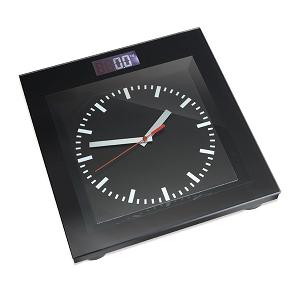
More evidence that low-calorie sweeteners are bad for your health
Studies show that artificial sweeteners can raise the risk of hypertension, metabolic syndrome, type 2 diabetes and heart disease, including stroke.

Natural Health News — Your innate ‘body clock’ has a huge influence on the way your body uses nutrients and calories throughout the day, according to two recent studies.
Circadian rhythms, which follow a 24 hour cycle, govern the fundamental physiological functions in virtually all organisms. They are time-tracking systems – an intrinsic ‘clock’ – that help our bodies anticipate environmental changes, such as exposure to light and dark, and adapt themselves to the appropriate time of day.
These rhythms regulate the release of hormones and impact fertility, immunity, digestive function, body temperature, the sleep-wake cycle and mood. Changes to these rhythms can profoundly influence our physical and emotional health.
In one study, Australian researchers claim to have discovered the first evidence that the nerves in the stomach act as a circadian clock, limiting food intake to specific times of the day.
The discovery, published in the Journal of Neuroscience, could lead to new information about how the gut signals to our brains about when we’re full, and when to keep eating.
The scientists investigated how the nerves in the stomach respond to stretch, which occurs as a consequence of food intake, at three-hourly intervals across one day.
“These nerves are responsible for letting the brain know how much food we have eaten and when to stop eating,” says lead author Dr Stephen Kentish of the University’s of Adelaide’s Nerve-Gut Research Laboratory.
Breakfast like a king…
“What we’ve found is that the nerves in the gut are at their least sensitive at time periods associated with being awake. This means more food can be consumed before we feel full at times of high activity, when more energy is required.
“However, with a change in the day-night cycle to a period associated with sleeping, the nerves in the stomach become more sensitive to stretch, signalling fullness to the brain quicker and thus limiting food intake. This variation repeats every 24 hours in a circadian manner, with the nerves acting as a clock to coordinate food intake with energy requirements,” he says.
So far this discovery has been made in laboratory studies, not in humans. However, says Dr Kentish, “Our theory is that the same variations in nerve responses exist in human stomachs, with the gut nerves being less sensitive to fullness during the day and more sensitive at night.”
If true, however, it suggests that the old adage, “Breakfast like a king, lunch like a prince, dinner like a pauper” may be grounded in an important biological truth.
Co-lead author Professor Amanda Page says this research could lead to further discoveries about how changes in people’s circadian clocks affect their eating habits.
“We know that shift workers, for example, are more prone to disruptions in sleep and eating behaviour, leading to obesity and other health problems. We are now conducting further research to see what kind of impact such changes to the circadian rhythm will have on eating behaviour, and how the nerves in the stomach react to those changes”
High fat diet deprogrammes the internal clock
A second study also shows the intimate link between circadian rhythms and cellular metabolism.
In it US researchers found that a high-fat diet disrupts the internal body clock that regulates metabolic functions in the liver. This disruption, in turn, can contribute to metabolic distress ailments, such as diabetes, obesity and high blood pressure.
Writing in the journal Cell the scientists from University of California at Irvine say that up to 15% of people’s genes are regulated by the day-night pattern of circadian rhythms, including those involved with metabolic pathways in the liver.
The good news is that returning to a balanced, low-fat diet normalised the rhythms again. According to the researchers the circadian clock is able to reprogram itself depending on a diet’s nutritional content and this reprogramming takes place independent of how much a person weighs.

Please subscribe me to your newsletter mailing list. I have read the
privacy statement